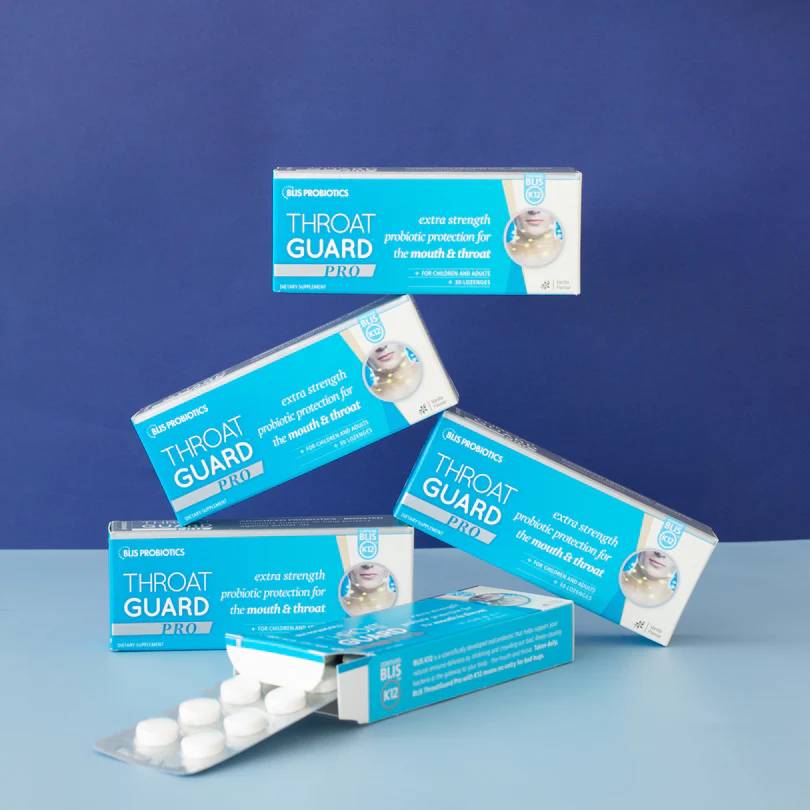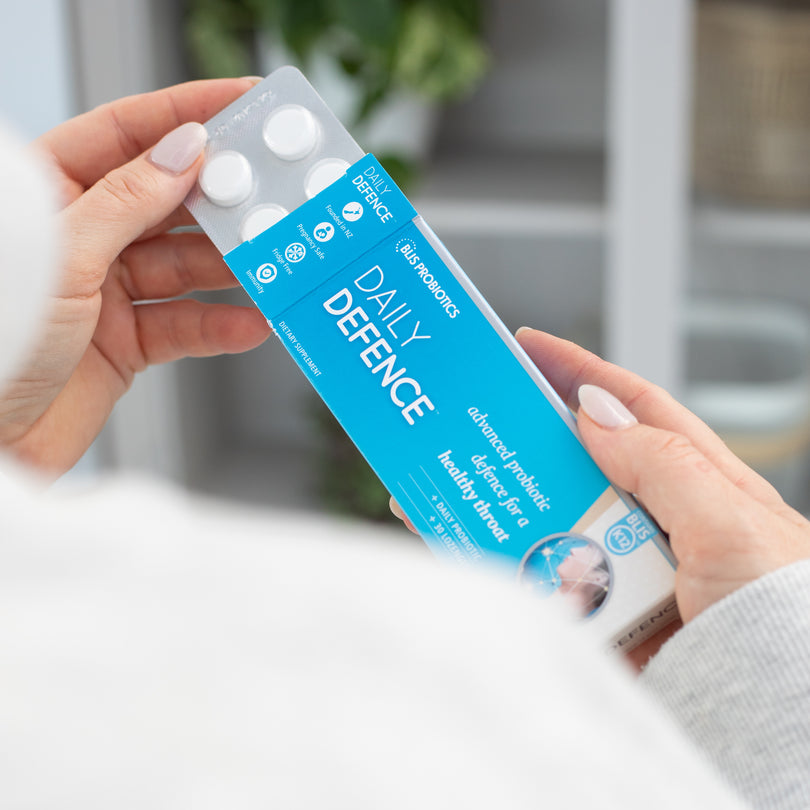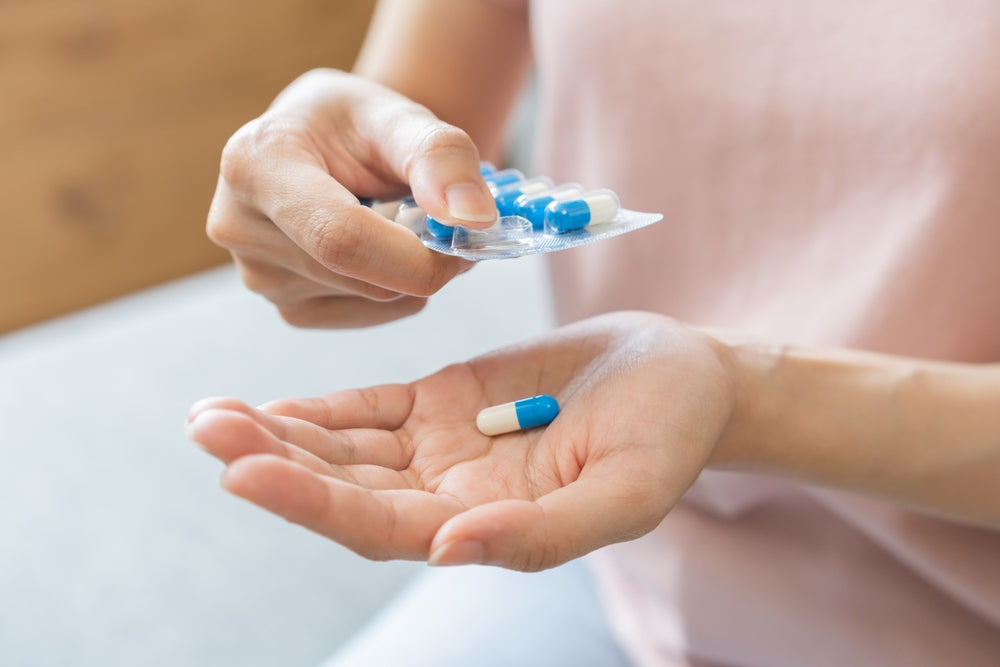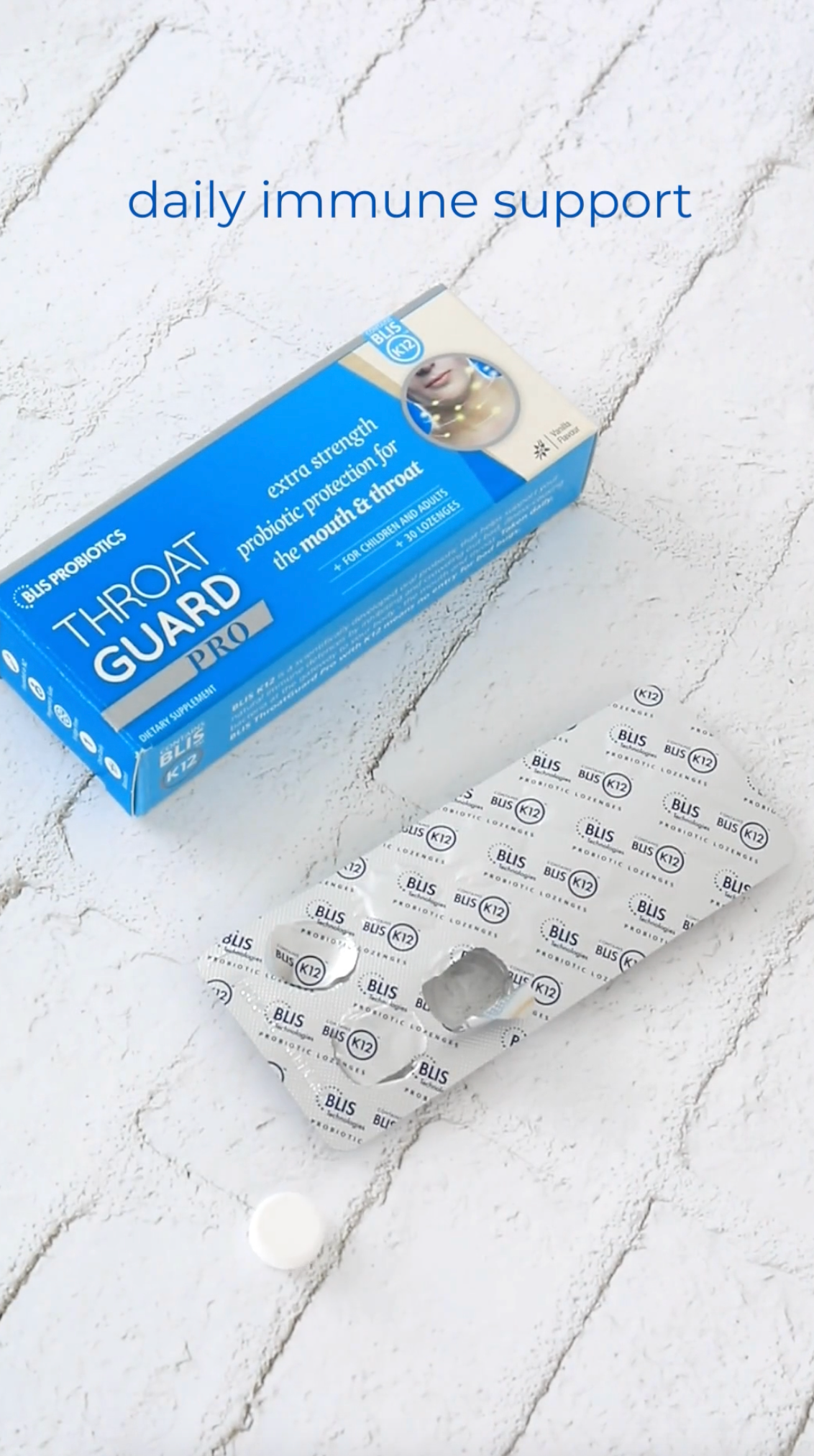Key Takeaways:
- Antibiotics disrupt gut health by killing off both harmful and beneficial bacteria, which can lead to a weakened gut microbiome. It can take several months for your gut flora to fully recover after a course of antibiotics.
- Taking a probiotic after antibiotic treatment helps to replenish the lost beneficial bacteria and restore a healthy balance. This approach can also help reduce common gastrointestinal side effects such as diarrhoea and bloating.
- The best probiotics contain clinically studied strains and a minimum of 1 billion CFUs to ensure they are effective for gut recovery. This is like finding a master gardener to replant and nurture your gut’s ecosystem back to health.
- Gut health can be further supported with a high-fibre diet, fermented foods, adequate hydration, and sufficient sleep. These natural strategies work alongside probiotics to support a balanced and healthy gut microbiome.
Nurturing Your Gut Flora Back to Health
Imagine your gut is a flourishing backyard garden, teeming with vibrant plants and flowers. Antibiotics, while essential for weeding out specific types of harmful bacteria, disturb this delicate ecosystem, pulling out the good plants along with the bad. After completing antibiotic treatment, your gut needs support to redeem its balance. This is where probiotics come in - they act as your garden's friendly caretakers, ready to replant and nurture the beneficial flora, ensuring your gut microbiome recovers and remains healthy and balanced.
In this guide, we'll explore how taking probiotics after antibiotics can help restore your gut's harmony and keep your internal garden thriving.
How Do Antibiotics Work?
Antibiotics are powerful medications designed to eliminate harmful bacteria that cause infections. They act like a strong weed killer in your garden, eradicating the bad plants that threaten your garden's health. However, they also disturb the beneficial bacteria that help maintain a balanced gut ecosystem. This disruption can lead to various digestive issues and a weakened gut microbiome, making it essential to support your gut's recovery after completing antibiotic treatment.
Why You Should Take Probiotics After Antibiotics
Antibiotics are a double-edged sword - they effectively kill harmful bacteria but can also disrupt your gut's delicate balance. Recent studies show that antibiotics cause rapid and diminished levels of bacterial diversity in the gut. For more on this, it's helpful to understand how probiotics help starve bad gut bacteria and why this is so important. This disruption can lead to various digestive issues, making your internal garden less vibrant and healthy.
Emerging research indicates that probiotics to take with antibiotics can be effective in preventing antibiotic-associated diarrhoea and promoting overall gut health post-treatment in the short term. Research undertaken on taking probiotics whilst on antibiotics has shown they are not justified - so resuming or beginning consumption upon conclusion of antibiotic treatment is recommended. Probiotics work like compost, enriching the soil and supporting the growth of healthy plants in your gut's garden.
How to Choose the Right Probiotics After Antibiotics
Choosing the right probiotic supplement/supplements is like finding the best gardener to revive your garden. After antibiotics have pulled out both harmful and beneficial plants, you need a skilled gardener to replant and nurture your gut’s ecosystem back to health. Here are key factors to consider:
Look for Specific Strains
Certain probiotic strains are more effective in restoring gut health after antibiotics. To get the full picture, you should also understand how probiotics support a healthier gut in general. Look for strains like Bifidobacterium lactis HN019, Lactobacillus acidophilus La-14, Lactobacillus rhamnosus GG, Saccharomyces boulardii. These strains help replenish beneficial bacteria and improve gut health.
Check the CFU Count
CFU (colony-forming units) indicates the number of live bacteria in the supplement. Aim for a product with at least 1 billion CFUs for effective results after your antibiotic treatment. Understanding why to use probiotics instead of antibiotics is also a great way to understand the purpose of your treatment.
UltraBLIS® The Best Probiotic to Take After Antibiotics
UltraBLIS® is a superior probiotic supplement designed to promote optimal gut and mouth and throat health. It is formulated with advanced strains that specifically target and support the immune system and gastrointestinal health, acting as master gardeners for your gut's ecosystem. UltraBLIS® helps maintain a healthy balance of both mouth, throat and gut bacteria after antibiotic treatment. Its unique formulation includes Streptococcus salivarius K12 (BLIS K12®), Bifidobacterium lactis HN019, and Lactobacillus acidophilus La-14, which ensure that beneficial bacteria survive the harsh environment of the digestive tract and reach the gut alive, just like resilient plants that thrive in diverse conditions. UltraBLIS® not only replenishes good bacteria but also enhances the overall health of your gut, making it a vital addition to your regimen after antibiotic therapy.
Cultivate a Flourishing Gut Beyond Probiotics
In addition to taking probiotics, there are several other natural strategies you can implement to help restore your gut health after antibiotics. These approaches can work with probiotics to support a balanced gut microbiome.
Eat a Balanced Diet Rich in Fibre
A diet high in fibre supports the growth of beneficial bacteria in your gut. Foods such as fruits, vegetables, whole grains, nuts, and seeds provide the difference between prebiotics and probiotics, which are non-digestible fibres that feed the good bacteria in your gut.
Incorporate Fermented Foods
Fermented foods like yoghurt, kefir, sauerkraut, kimchi, and kombucha are natural sources of probiotics. Regularly consuming these can help increase the population of beneficial bacteria in your gut.
Stay Hydrated
Drinking plenty of water is essential for overall health and helps maintain the balance of bacteria in your gut.
Ensure Adequate Sleep
Getting good quality sleep is key to supporting a healthy gut, research suggests that adults should aim for around 7 to 9 hours per night, as both shorter and longer sleep durations have been linked to potentially unfavorable changes in gut microbiota.
BLIS Probiotics® - Your Microbiome Garden’s Caretaker
Taking the best probiotics to take after antibiotics can help reduce side effects, maintain gut health, and promote overall wellness. UltraBLIS® is particularly effective in supporting gut health after your antibiotic treatment, ensuring your internal garden remains vibrant and healthy. Just as a dedicated gardener tends to every plant, BLIS Probiotics carefully nurtures your oral and gut microbiomes, helping you achieve optimal health.
How long should you take probiotics after antibiotics?
It's generally recommended to continue taking probiotics for at least one to two weeks after finishing your antibiotic course. This helps ensure beneficial bacteria have time to reestablish and maintain a healthy gut flora balance.
How to replenish gut bacteria after antibiotics?
Replenishing gut bacteria after antibiotics involves taking a high-quality probiotic supplement, incorporating fermented foods into your diet, eating a variety of fibre-rich foods, and staying hydrated. These steps help support the growth of beneficial bacteria and restore a balanced gut microbiome.
How do I rebuild my immune system after antibiotics?
To rebuild your immune system, focus on maintaining a healthy gut by taking probiotics, eating a balanced diet rich in fibre and fermented foods, managing stress, exercising, and ensuring adequate sleep. A healthy gut microbiome is crucial for a strong immune system, as it plays a significant role in immune function.






